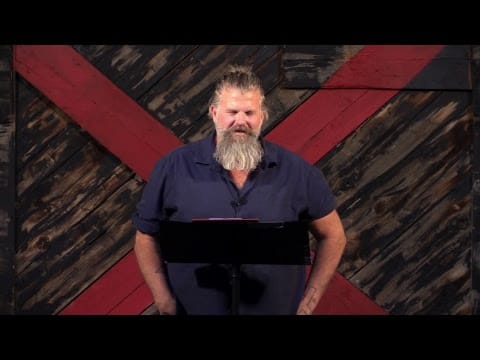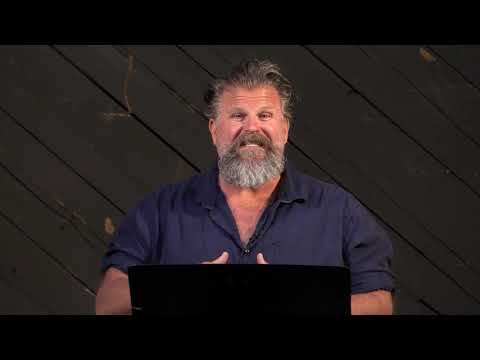
2 Corinthians 3:7-16 Bible Teaching
Shawn's teaching on 2 Corinthians 3:7-16 contrasts the old law's "ministration of death" with the New Covenant's Spirit-led life, emphasizing internal transformation and surpassing glory.

Shawn's teaching on 2 Corinthians 3:7-16 contrasts the old law's "ministration of death" with the New Covenant's Spirit-led life, emphasizing internal transformation and surpassing glory.

Paul emphasizes spiritual transformation over written commendations, highlighting believers as "living epistles" with God's laws inscribed on their hearts by the Spirit.

Unity and interdependence in the Body of Christ, diverse gifts from the Spirit, spiritual baptism as unifying force, love as foundational, and valuing all members equally.

The teaching summary highlights spiritual gifts from 1 Corinthians 12:7-11, emphasizing their role in manifesting God's presence and love. It discusses the importance of embodying truth and love, the state of one's heart, and the New Testament's identification of spiritual gifts. The Holy Spirit distributes these gifts for mutual benefit, encouraging believers to use them for the greater good.

Paul's journey to Troas, concern for Corinth, gratitude for ministry success, gospel as fragrant incense, ministers' faithfulness, voluntary gospel acceptance, transformative power, warning against corruption.

Paul's teachings in Corinthians focus on addressing sin, promoting forgiveness, and restoring repentant individuals to maintain church unity. He emphasizes compassion, discretion, and the importance of God's presence to counteract spiritual darkness.

Paul in 1 Corinthians 12 highlights spiritual gifts from God, warns against misuse, and stresses love. Cessationists and continuationists debate their current relevance.

Shawn teaches that Apostle Paul in 1 Corinthians 11:27-34 emphasizes reverence, self-examination, and community unity in Communion, warning against unworthy participation.

Paul emphasizes divine anointing and sealing by the Holy Spirit, urging forgiveness and restoration within the church. Shawn highlights the Spirit's role as a pledge of salvation, advocating for faith through love and reason, not authority.

Paul and Shawn emphasize reliance on God, prayer's power, self-sacrifice, and truth in Christ. Paul reassures of God's promises, while Shawn highlights prayer's role in divine intervention.

Paul addresses division in Corinth, emphasizing true worship and communion's focus on Christ's victory. Ephesians highlights Jewish apostles' roles in God's plan.

Shawn focuses on eternal spiritual principles in scripture, emphasizes discernment by the Spirit, and highlights cultural context in biblical teachings, promoting mutual respect and unity.

Paul's teaching in 1 Corinthians 15:20-26 highlights Christ's resurrection as the "first-fruits," assuring believers of future resurrection and victory over death.

The teaching introduces the "Tri-Binary Model" to align Christian practice with scripture, redefines traditional Christianity, and emphasizes a spiritual journey from creation to a New Aeon, focusing on love and spiritual truths over material allegiances.

The teaching introduces the Tri-Binary Model to interpret 1st Corinthians 11, emphasizing spiritual growth, personal faith alignment, and transcending traditional Christianity.

Paul's Second Corinthians, sent via Titus, emphasizes apostolic authority, spiritual themes, church collections, and personal struggles, with critical ancient manuscripts aiding scholarship.

Shawn's teaching highlights communion's significance, questions modern application of biblical instructions like head coverings, and emphasizes spiritual transformation over cultural practices.

Shawn stresses praying to God the Father through Jesus, citing scripture. Paul advises freedom with responsibility, prioritizing others' well-being and God's glory.

Shawn's teaching on Revelation highlights its Jewish context, Preterist view, Jesus' role, and unity through faith. Emphasizes spiritual growth, divine authority, and salvation.

Shawn's teaching on Revelation highlights the transition from the 'present age' to the 'age to come,' focusing on early church challenges, prophecy fulfillment, and spiritual transformation.

Shawn's teaching warns believers to avoid Israelite pitfalls like idolatry and lust, emphasizing spiritual growth through Christ, resisting worldly temptations, and learning from past mistakes.

Paul uses athletic metaphors to stress vigilance in faith, baptism as identification, and the Israelites' journey as a warning against disobedience and faithlessness.

Shawn's teaching on Revelation 21-22 highlights the New Jerusalem as a symbol of God's people under the new covenant, emphasizing spiritual victory, transformation, and divine presence.

Revelation 21:9-21 describes the New Jerusalem's descent, symbolizing the New Covenant's inclusivity. Shawn highlights Revelation 21:1-8's themes of renewal and judgment. The Shekinah glory now rests on the Church, symbolizing believers' unity. The city, with gates and foundations named after tribes and apostles, signifies universal access to God's kingdom. The cube-shaped city, adorned with precious stones, represents purity. Revelation 21:22-27 emphasizes God's eternal light. The integration of Gentiles and submission of kings to Christ are current realities, not future events. The vision portrays a transformative era under the new covenant.

Paul and Shawn emphasize self-discipline, perseverance, and love in the Christian faith, likening it to a race for eternal rewards, requiring dedication and overcoming trials.

Paul defends his integrity in 1 Corinthians 9, emphasizing preaching without charge, adapting to others, and living off the gospel, prioritizing spiritual calling over gain.

Revelation 21 symbolizes the New Jerusalem as the faithful Church, emphasizing spiritual fulfillment over material, transitioning from old to new covenant, and eternal life through Christ.

Paul defends apostleship rights, chooses not to use them to avoid hindering the gospel. Shawn emphasizes voluntary, cheerful giving, following Paul's example of independence.

Revelation 21 describes a new heaven and earth, New Jerusalem as a heavenly city, symbolizing the church's spiritual identity, unity in Christ, and life beyond death.

Shawn teaches on 1 Corinthians 8:7-13, emphasizing love and respect for weaker faith, avoiding actions that cause others to stumble, and prioritizing others' spiritual well-being.